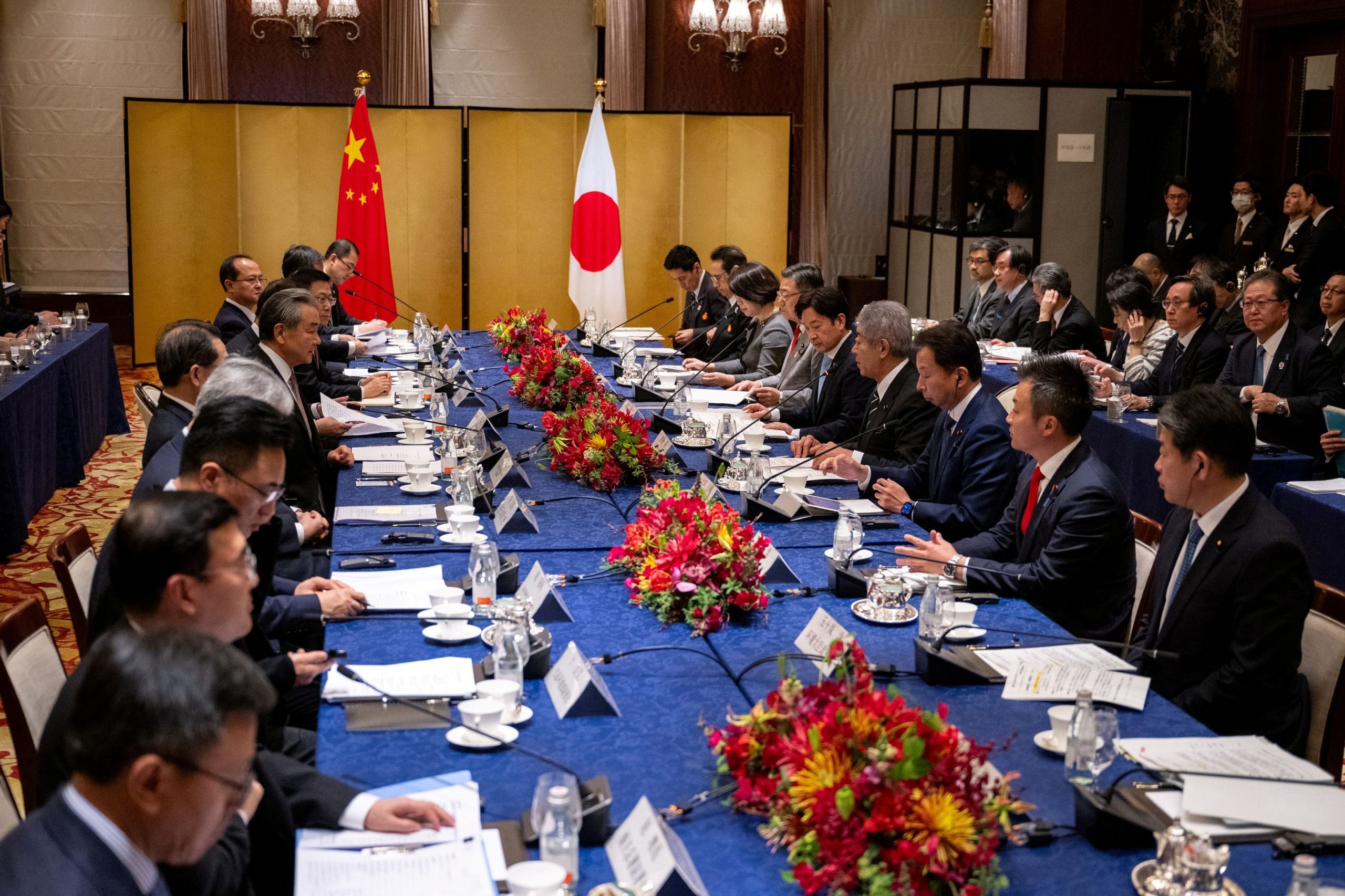China, Japan, and South Korea have agreed to strengthen their economic cooperation in response to U.S. tariffs, a Chinese state media outlet reported on Monday. However, Seoul downplayed the claim, calling it “somewhat exaggerated.”
The announcement came after the three countries held their first economic dialogue in five years on Sunday. The meeting, aimed at facilitating regional trade, took place as all three Asian export powerhouses brace for a new wave of tariffs from U.S. President Donald Trump.
Coordinating Supply Chains Amid Trade Tensions
According to a Weibo post from Yuyuan Tantian, an account affiliated with Chinese state broadcaster CCTV, Japan and South Korea are looking to import semiconductor raw materials from China, while China is interested in purchasing chip products from Japan and South Korea. The report stated that the three countries agreed to strengthen supply chain cooperation and hold further talks on export controls.
However, South Korea’s trade ministry pushed back on the idea of a coordinated response against U.S. tariffs.
“The suggestion that there was a joint response to U.S. tariffs appears to have been somewhat exaggerated,” a ministry spokesperson said, urging reference to the official joint statement.
Talks on a Regional Free Trade Agreement
Despite differences over the characterization of the meeting, the three nations did agree to accelerate discussions on a South Korea-Japan-China free trade agreement to enhance “regional and global trade,” according to the statement released after the dialogue.
“The three countries exchanged views on the global trade environment, and as you can see in the joint statement, they shared their understanding of the need to continue economic and trade cooperation,” the South Korean trade ministry added.
Japan’s foreign ministry has not yet commented on the details of the discussions.
Preparing for Trump’s Tariff Announcement
The timing of the talks is significant, as the meeting took place ahead of President Trump’s anticipated announcement of new tariffs on Wednesday, a move he has dubbed “liberation day” as he seeks to reshape Washington’s global trade relationships.
Beijing, Seoul, and Tokyo all maintain major trading partnerships with the U.S., but they have also faced tensions among themselves, including disputes over historical issues, territorial claims, and Japan’s release of wastewater from the Fukushima nuclear disaster site.



